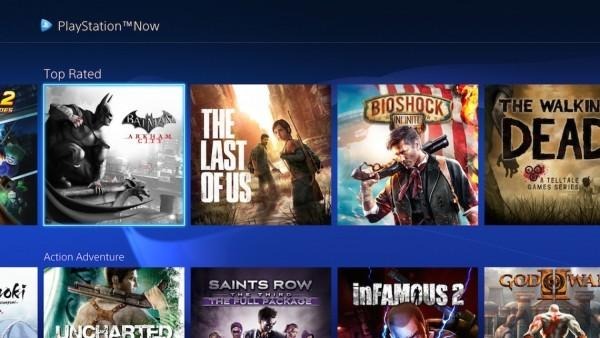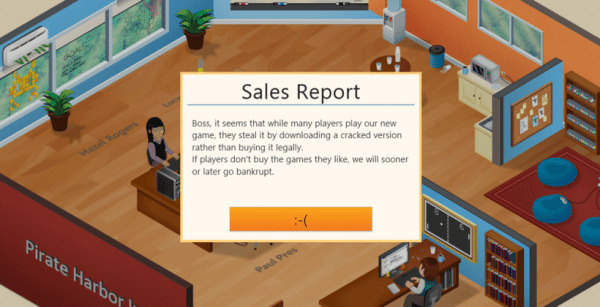Game Streaming: Fad Or Future?
Sony, NVIDIA, and, just recently, GameFly. These are the companies that are trying to push game streaming to the forefront. And they are just the bigger ones, with smaller players also trying to make a name for themselves in this niche, either through innovation or through sheer force of will. But behind all these attempt lurks one unanswered question: is it worth it? Is game streaming just a fad that will fade away quietly or is it the path to the future? While the technology admittedly has benefits, who is it really benefiting, players or the big companies?
The draw of streaming
Let's face it. Gamers are easy to initially wow with fancy new stuff but, after the fireworks settle down, are harder to convince. Game streaming is the new kid in the block, relatively speaking, and while it looks all glittery and fresh, not everyone has been swayed by it. There are, of course, some benefits to this type of gaming or it would have ceased to exist immediately. Almost all of the advantages, however, boils down to one thing. Game streaming removes, or at least mitigates, hardware from the equation.
Game streaming practically turns consoles and PCs into thin terminals, used to communicate with a remote server, display data, and accept input. Almost all processing and rendering power happens somewhere else on a remote server. For players, this would mean not having to worry about system requirements, backwards compatibility, and all the other concerns that plague each new console generation. For game developers, this means they won't have to bother either with system requirements, at least not too much. On consoles, that part of the development process isn't as pronounced. On PCs or cross-platform ones, it's a huge pain in the proverbial rear.

This core benefit of game streaming can perhaps be seen in Square Enix's latest gimmick in Japan. Last April, it made Final Fantasy XIII, a graphics-heavy game, available for iOS and Android and it didn't need to port the game to mobile at all. Instead, the game is streamed to these less powerful devices. A direct port would have been nigh impossible given hardware considerations, but thanks to game streaming, the impossible was suddenly made possible.
Power and control
While companies might sing of the advantages of game streaming, gamers aren't the sole beneficiaries of this business. After all, the gaming industry is a business, not a charity, and companies will hardly push for a technology that they can't profit from, one way or another. In the case of game streaming, however, the profits don't come in the money they make upfront but in the losses that they are able to prevent.
Piracy
Perhaps no word strikes more fear in the hearts of game developers and publishers than piracy. While a good number have resigned themselves to piracy as a fact of life, it doesn't make it right nor ideal. Sadly, some companies have taken rather extreme countermeasures that end up blowing in their faces, not to mention their customers.
Game streaming subtly solves that problem. In majority of implementations, the game itself is never downloaded and doesn't exist on the local device, at least not fully. Only images and input commands are sent back and forth between server and gaming machine. In short, there is nothing to pirate. In addition, access to games are intricately tied to user accounts. So unless the account gets hacked, no one else other than the user can play the game.

Control
It all boils down to control. When a company ships game discs or even digital copies, they give up a certain amount of control to users and retailers. Aside from piracy, this could also lead to some logistics problems down the line, specially when it comes to pushing out patches. Game developers can testify how difficult it is to roll out bug fixes, even critical ones, when your installation media is all over the place. Wouldn't it be easier to simply patch one or two or even a handful of games installed on a server that the company has direct control over?
Remember the recent Batman: Arkham Knight fiasco? While Warner Bros. and developer Rocksteady Studios might not have been saved from the terrible PC port, they might not have had to pull out sales of the game if it were simply something that was streamed. They could have just suspended access to it while the developers frantically fix the issues.
A rough road ahead
Game streaming perhaps represents a utopia for gamers and, perhaps even more so, for publishers and developers. But like any utopia, we aren't quite there yet. Reality has a harsh way of reminding us of limitations, and gaming is no different. There are a few factors that oppose this movement, but two are perhaps most prominent.
Ownership
Ownership, especially of digital goods, is particularly tricky. Unless you're running on Linux, the software you're using on your PCs or Macs technically aren't yours. You're only buying a license to use them, basically asking permission from the owners. Games are not that different, but the existence of physical discs do make you feel like you do own the game. With game streaming, that delineation is more clear cut. You don't own the game, you're just renting. More than just a linguistic distinction, however, ownership carries with it legal ramifications. It's the diametric opposite of the control that game streaming gives to the companies. Gamers surrender it all. And sadly, history isn't lacking in anecdotes about how some companies are not beyond screwing their own customers.
More than just that, however, there is also the sentimental aspect of owning physical copies of a game. Gamers love to collect. Some even love to hoard. A gamer revels in the boxes and cases of games that fill his or her shelves. A virtual shelf, especially one that looks nothing like a shelf, just doesn't cut it sometimes.
Access
Gamers' access to the game, however, is the biggest hurdle to be overcome. Game streaming practically turns all games in its catalog, even single player ones, into online games. It was bad enough that some anti-piracy measures required players to go online first to authenticate. This would require them to be online to play at all. This puts hard limits on when and where these games can be played. It puts gamers at the mercy of their Internet connections. Sadly, not everyone has oodles of bandwidth to use for gaming, something the likes of Sony implicitly admit by launching their services only in countries or cities with decent Internet services. Even then, connections aren't always stable and the problem of latency is transferred from the console or PC hardware to the network.
Some like Utomik have tried to solve that problem by actually downloading parts of the game bit by bit as needed. Since the game is running locally, there is no latency. But then it suffers the same hardware constraints, lack of control, and possibility of piracy that locally installed games have. As such, it can't be a long-term game streaming solution.
Last Word
Game streaming sounds nice and all for both gamers and especially for companies but, as it is now, it is far from perfect. Ethical, legal, and emotional considerations aside, the biggest stumbling block is still technical. Technology and Internet access have yet to reach a point where game streaming is no longer something a relatively few privileged people can enjoy.
So is game streaming the future? If game publishers and game makers will be the sole judges, yes it is. But it is a very distant future. Perhaps when Musk's dream of Internet-bearing satellite swarms is no longer just a dream. For now, collectors, retailers, and shipping companies need not yet fear for the future. They're businesses, and habits, are safe. For now.
